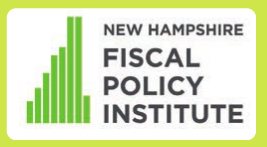New Hampshire’s labor force shortage has become more severe since the Covid-19 crisis, and the number of residents working or looking for work remains lower than before the pandemic. In February 2023, there were an estimated 44,000 job openings and 20,600 unemployed workers in the state.
While long-term demographics and other structural factors beyond the reach of state policy contribute to this shortage, the House’s State Budget proposal uses a multipronged approach to try to address this key economic constraint, with modest but important investments in housing, child care and the healthcare workforce.
The state’s lack of houses and apartments restricts the ability of workers and families to move to or within New Hampshire, or afford increasingly expensive options that are available, especially for renters with rising monthly bills. The House’s budget would add $30 million to the Affordable Housing Fund and $15 million to a modified version of the InvestNH Fund, which is currently distributing federal dollars for housing projects and municipal incentives or initiatives.
These investments would not eliminate the estimated current 23,500-unit shortage, but may help expand housing options for current and future residents.
Between June 2022 and April 2023, an average of 15,700 Granite Staters each month were not working because they were caring for a child who was not in school or child care. That does not include employed residents who were working fewer hours than they otherwise would due to child care duties. The 2021 median annual child care cost in New Hampshire was $13,260 for a child under a year old, and over $10,000 per child up to age five. A University of New Hampshire analysis suggests more parents have to drive longer distances than before the pandemic to find care for their children. The House proposal would make more families eligible for key child care assistance and boost reimbursements to child care providers. These steps could potentially help increase child care supply, including pay for employees, while reducing the cost to families.
Finally, the House budget would boost Medicaid reimbursement rates with $134.2 million in state funds, including resources targeted at mental health, developmental, nursing, home health and substance use disorder services. Funding for these rate increases would total more than $260 million over the biennium with matched federal funds, relative to a $2.7 billion New Hampshire Medicaid program this year, and would provide more resources for health providers struggling to find staff. Salary boosts may aid in hiring and retaining workers who provide needed medical care to Granite Staters.
Phil Sletten is research director of the NH Fiscal Policy Institute. The NHFPI Policy Memo is a partnership of the NH Fiscal Policy Institute and NH Business Review.